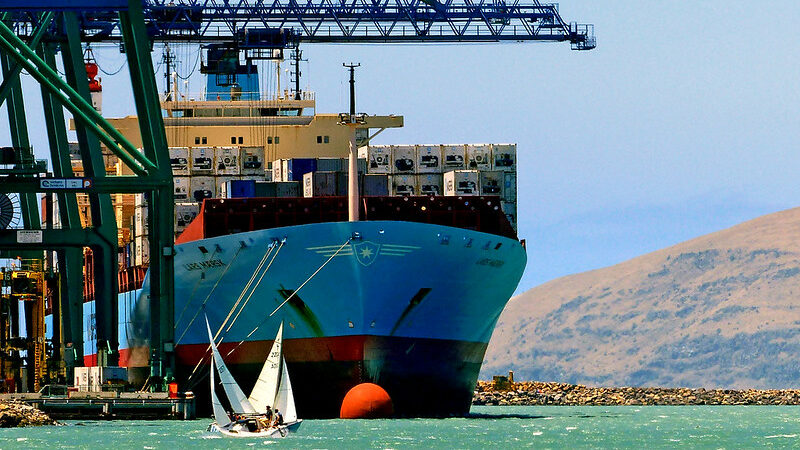The report was seized upon by the Marshall Islands but branded “unacceptable” and “nonsensical” by Argentina and Brazil
Pacific governments say an official UN report shows their push for a levy on all shipping emissions – with the revenues redistributed to poorer nations – is fairer, cheaper and more effective than other green options under consideration.
The report, overseen by a steering committee of 32 governments and published by the International Maritime Organisation (IMO), found that a levy would do less damage to the global economy than a standard for cleaner fuels and, if designed right, could help reduce global economic inequality.
Marshall Islands shipping negotiator Albon Ishoda said the analysis showed that a direct levy on emissions “is the fastest, cheapest and most equitable way” to decarbonise shipping, a sector that accounts for 3% of the world’s greenhouse gas pollution.
A levy would force ship owners to pay for every tonne of greenhouse gases their vessels emit, making the use of more-polluting fuels – like today’s oil-based bunker fuel – more expensive. It would incentive the use of lower-emitting fuels like ammonia, biofuels, methanol and hydrogen.
Ishoda said he now expects to see countries coalesce around an emissions levy, adding that “alternatives such as relying solely on a fuel standard could be up to twice as damaging for global GDP by 2050, with the poorest countries hit hardest”.
IPCC’s input into key UN climate review at risk as countries clash over timeline
But written comments on the UN Trade and Development (UNCTAD) report show that Brazil, Argentina and China disputed its findings. Latin American nations have long led opposition to an emissions levy, fearing it will harm their trade-dependent economies.
Argentinian officials noted that they were “surprised” at the conclusion that levies would lead to less economic damage in the long term while Brazil wrote that this was “nonsensical”.
Argentina said it was “policy-prescriptive and therefore unacceptable” for the report to suggest that disbursing the revenues would help developing countries more than developed ones, while China argued this aspect should not have been factored in as “the impact assessment should focus on the impact of the measure, rather than the impact after revenue distribution”.
Levy or fuel standard?
Governments have already agreed to put a price on shipping emissions as a way to reach net zero “by or around, i.e. close to 2050”. But they have not settled on exactly how to do that, instead tasking experts to study the impacts of various proposals.
One proposal – which most countries support – is a fuel standard that would see ship owners pay for emissions only above a certain level. Owners of ships emitting below this level could potentially sell licenses to those emitting above it, enabling them to continue polluting. This would incentivise shipowners to use cleaner fuels or to save fuel by sailing slower.
Some countries – like the Pacific island states and many European nations – want to combine this fuel standard with a levy, where ship owners would have to pay varying amounts based on their vessels’ total annual greenhouse gas emissions.
Renewable-energy carbon credits rejected by high-integrity scheme
Under the direction of governments, experts from UNCTAD, the World Maritime University, DNV and Starcrest Consulting Group produced four separate reports, modelling dozens of different scenarios.
UNCTAD found that any emissions-cutting scenario would push up the cost of shipping, damaging the global economy by around 0.1-0.2% by 2050. It did not model the economic benefits of how the measures would help curb climate change.
Comparing a levy to a fuel standard, the UNCTAD report concluded that “in the long run (2050), scenarios that envisage a levy have a smaller impact” on economic gr
Read More

